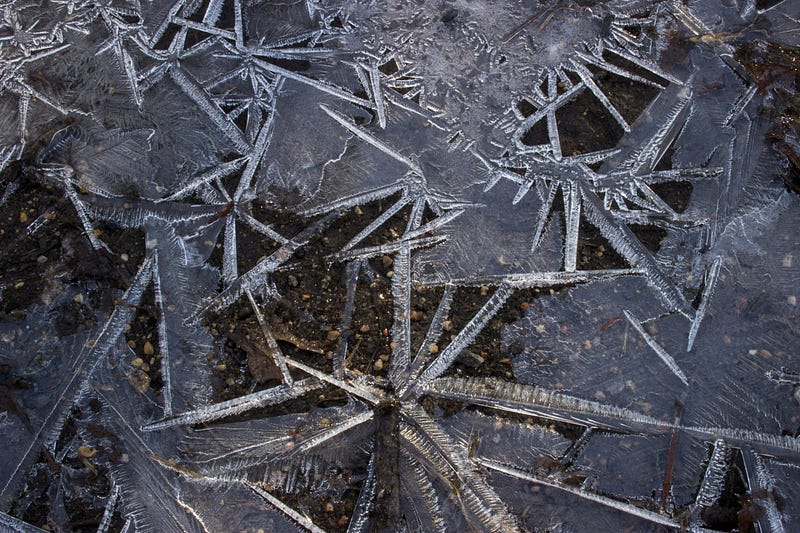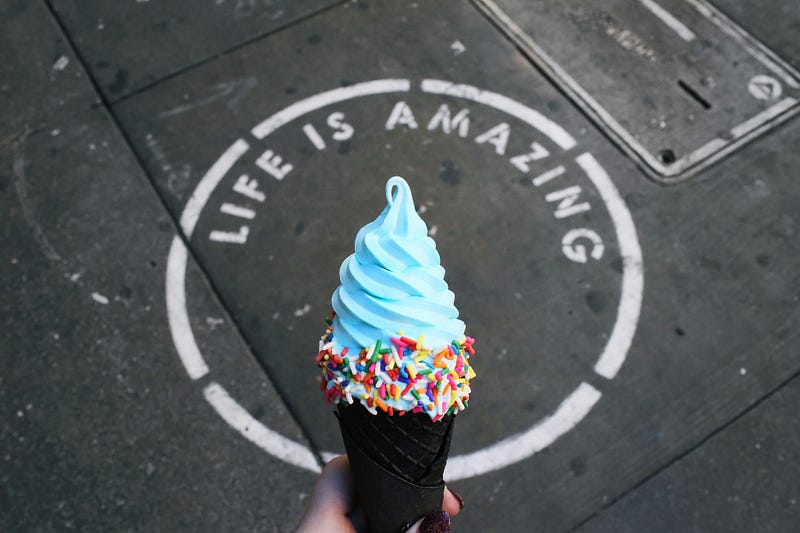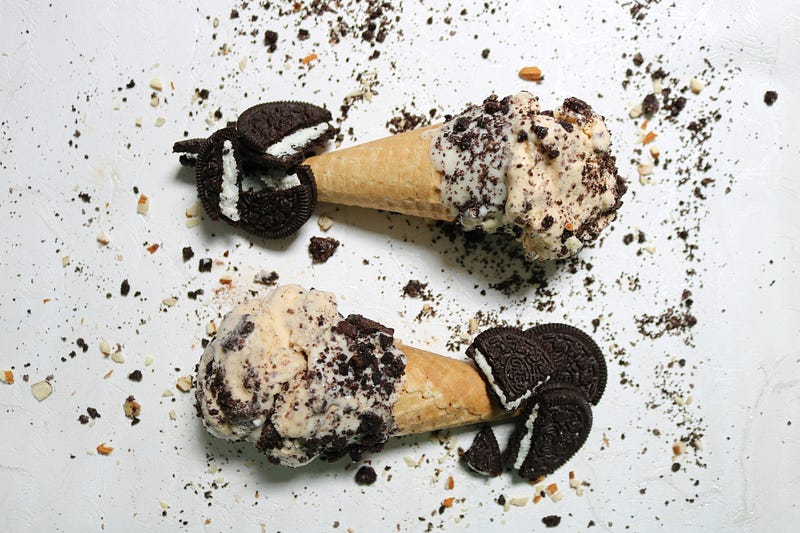The Mystery of the Mpemba Effect: Why Hot Water Freezes Faster
Written on
The Mystery of the Mpemba Effect: Why Hot Water Freezes Faster
“Hence many people, when they want to cool water quickly, begin by putting it in the sun,” Aristotle once noted.
Prologue
While charging my iPad, I often notice a curious occurrence: the charging slows significantly as the battery nears its full capacity. This behavior is intentional, designed to extend the battery's life, and there’s nothing perplexing about it.
This phenomenon reminds me of a puzzling scientific effect still hotly debated among physicists and other scientists—the rate at which water freezes, which seems to vary depending on whether it starts out hot or cold.
At its core, the idea is quite straightforward: hot water can freeze faster than cold water. This counterintuitive observation is known as the Mpemba effect, named after Erasto Bartholomeo Mpemba, a 13-year-old boy from Tanzania who first noticed it in 1963. In the years following, he conducted systematic experiments on this effect alongside British physicist Denis Osborne.

The Mpemba effect has been referenced since ancient times; Aristotle mentioned it in his work Meteorology, considering it common knowledge. Notably, both Francis Bacon and René Descartes reportedly observed similar phenomena.
This effect is intriguing because it appears to contradict common sense and seems to challenge established laws of physics, such as Fourier's law (or Newton's law of cooling), which asserts that the rate of cooling is proportional to the temperature difference between an object and its surroundings.
Mpemba's Story
As a young boy, Mpemba made his notable observation without any knowledge of the laws of physics. For a school project, he was instructed to boil milk before cooling it down, then place it in the refrigerator. However, he mistakenly put the hot mixture into the fridge. To his astonishment, it froze faster than the cooled milk.
Years later, after learning about Newton's law of cooling, Mpemba sought to reconcile his observations with this law. When he asked his physics teacher, the response was one of skepticism: “That can’t happen. You are confused.”
Fortunately, while still in high school, he encountered Denis Osborne, a visiting physics professor at University College in Dar es Salaam. Osborne was more open to Mpemba's claims, suggesting that “it is dangerous to pass judgment on what can and cannot be.”
Osborne later had a technician repeat the experiment, and the results surprisingly supported Mpemba's original findings. In 1969, Osborne and Mpemba co-authored a paper published in the journal Physics Education.

Controversy
Our senses can sometimes deceive us, making it imperative for scientific observations to be backed by well-controlled and reproducible experiments.
The Mpemba effect, while seemingly straightforward, remains a topic of contention. Why is this effect still a subject of debate even after decades of advancements in science and technology?
It turns out that conducting a controlled experiment to confirm the Mpemba effect is quite complex, as numerous parameters are interconnected.
A recent review paper reformulated the original question: “There exists a set of initial parameters, and a pair of temperatures, such that given two bodies of water identical in these parameters, and differing only in their temperatures, the hot one will freeze sooner.”
Defining "freezing" is also crucial—does it mean the moment ice forms, when the entire volume turns solid, or simply when the temperature reaches 0 °C (32 °F; 273 K)? Regardless, accurately measuring these freezing times, especially in a refrigerator, poses significant challenges.
Over the years, numerous experiments have attempted to validate or refute the Mpemba effect. A 2016 study by Burridge and Linden in Scientific Reports concluded that there was no substantial evidence supporting the Mpemba effect, defining freezing as the time taken to reach 0 °C.

However, this was not the end of the debate. In 2020, Kumar and Bechhoefer published a paper in Nature, providing strong evidence in favor of the Mpemba effect within a colloidal system.
Additionally, in early 2022, a study led by Raphaël Chétrite demonstrated an inverse version of the Mpemba effect, where a cold object can heat up faster than a hot one, expanding the scope of this research beyond just water.

Quantum Mpemba Effect
Recently, on July 1st, three research groups published articles in Physical Review Letters investigating quantum mechanical versions of the Mpemba effect and its inverse. Their findings support the existence of the effect in various physical systems.
To clarify quantum mechanics, consider the example of throwing a ball. Classical mechanics can precisely describe its movement if initial conditions are known. However, at the subatomic level, quantum mechanics must be applied, where the position and speed of particles cannot be determined simultaneously, known as the uncertainty principle.
The quantum realm is filled with counterintuitive principles that can manifest even at macroscopic scales, leading to phenomena like superconductivity.
Today, the Mpemba effect is relevant not only to the behavior of water but also to a range of physical phenomena, including quantum relaxation and thermodynamics, broadening its implications significantly.
Mystery Continues — Mpemba’s Legacy
Despite the growing body of research, there remains no consensus among scientists regarding the mechanism behind the Mpemba effect. Various theories attempt to elucidate the phenomenon, including microbubble and solvation theories.
Bechhoefer remarked, “A glass of water stuck in a freezer seems simple. But it’s actually not so simple once you start thinking about it.”
Water, being one of the most abundant substances on Earth and essential to life, holds many mysteries. Without considering the Mpemba effect, water itself is already enigmatic—why is it denser at 4°C than at other temperatures? This unique density leads to ice forming from the top down rather than the bottom up.
These peculiar properties raise further questions about their relationship to the Mpemba effect. While we may not have definitive answers, the inquiry is fascinating.
The Mpemba effect is a compelling scientific puzzle with far-reaching implications, continuously inspiring further exploration and inquiry. The controversy ignited by a young boy's curiosity decades ago remains alive, challenging the established scientific community.
What if Mpemba had succumbed to discouragement, dismissing his observations as nonsense? What if he had not encountered an open-minded mentor like Osborne? It’s likely we would not have recognized this intriguing behavior of freezing water today, attributing ancient observations merely to imprecise measurement techniques.
Mpemba’s determination and Osborne’s collaborative spirit created a significant chapter in scientific history.
Are there still unexplored mysteries within water or other everyday substances? Perhaps you could be the next Mpemba, discovering hidden truths in your kitchen or elsewhere. Pay attention to your surroundings; the mysteries may be right in front of you.

> “The man of faith, of energy, of warmth… steps in and does something.” > — Vincent van Gogh